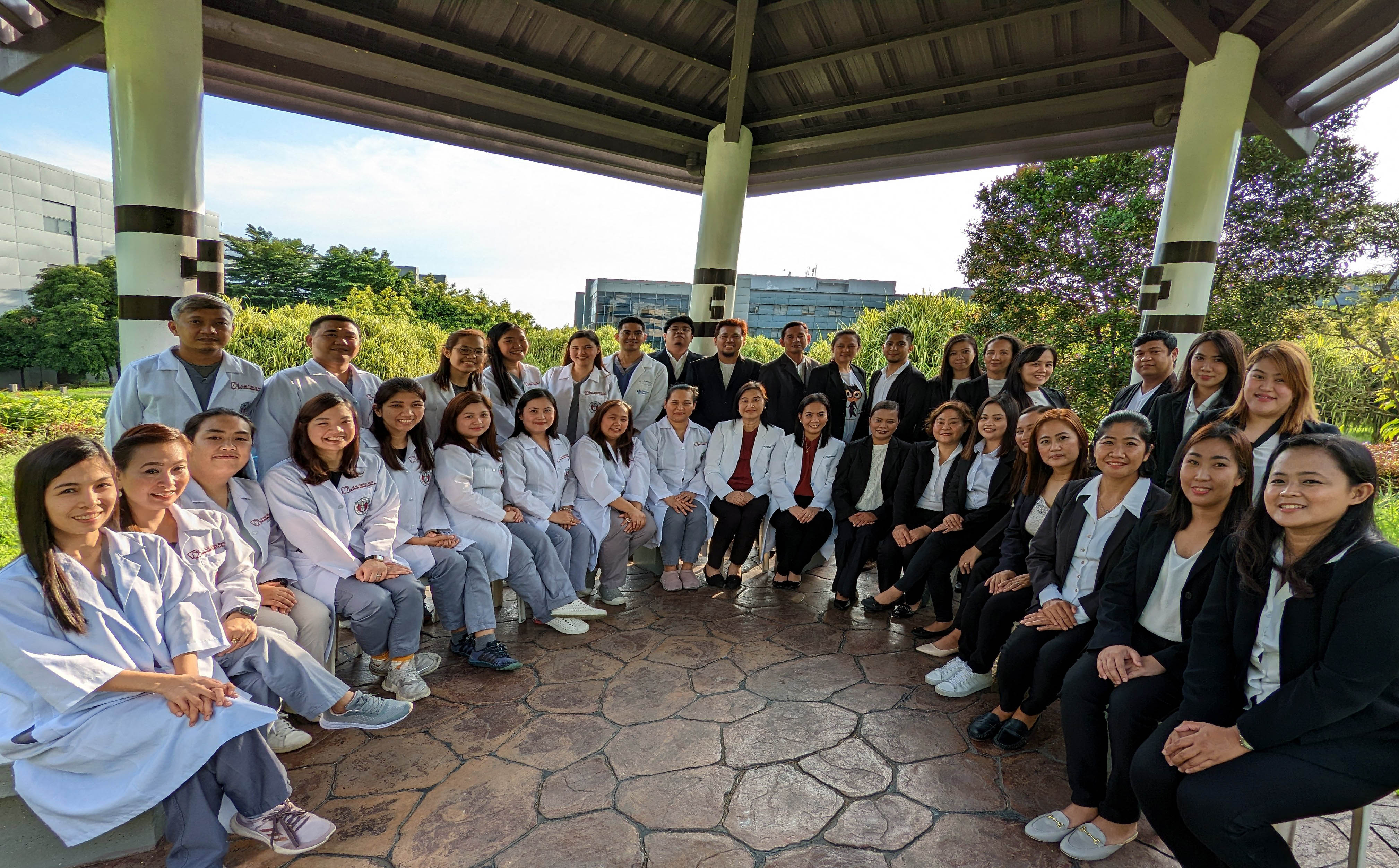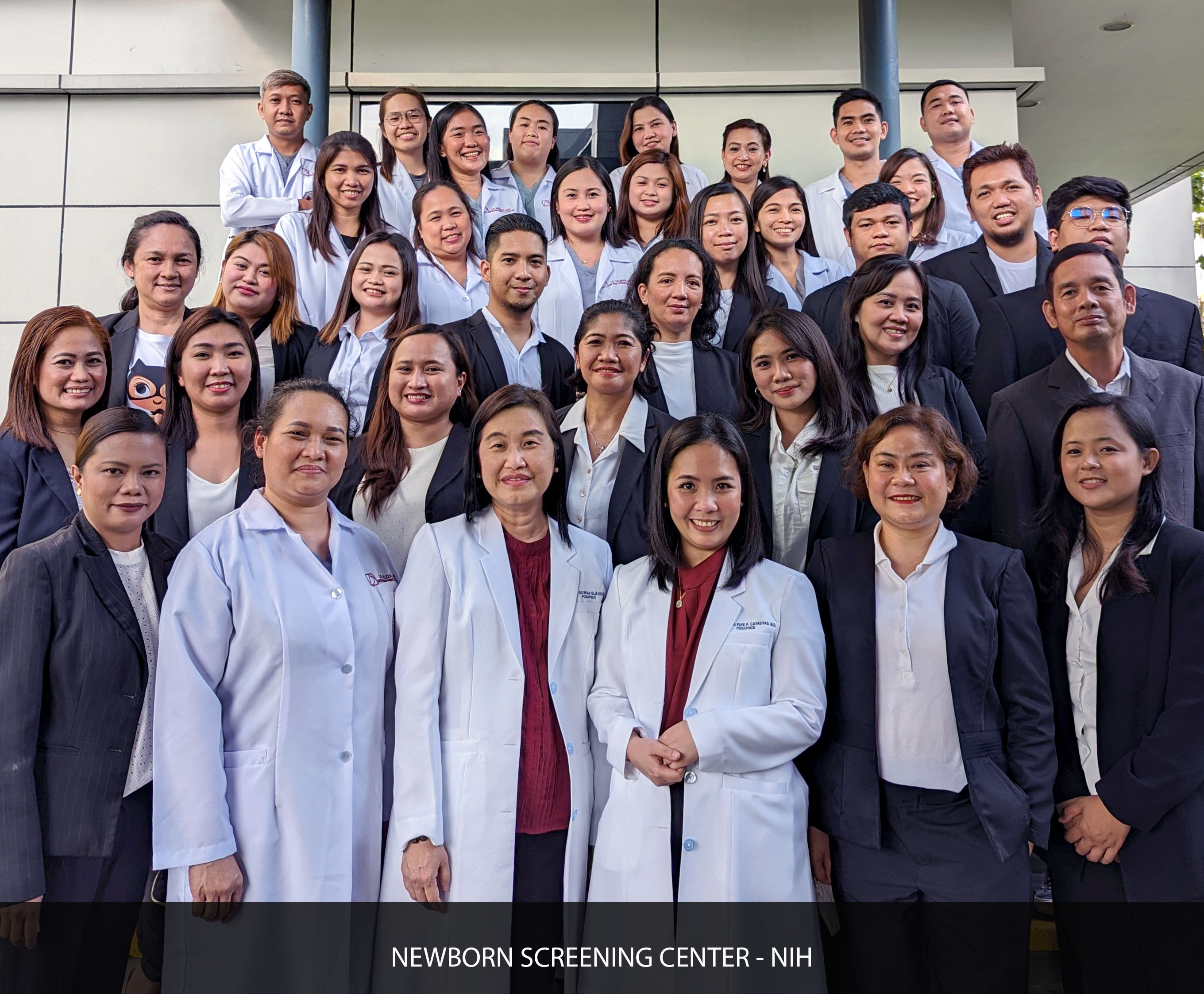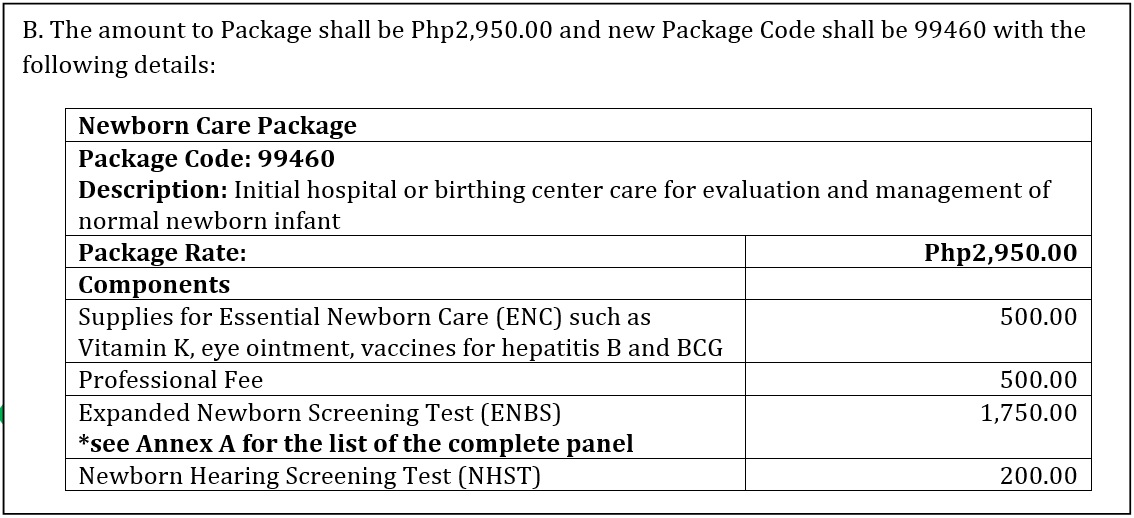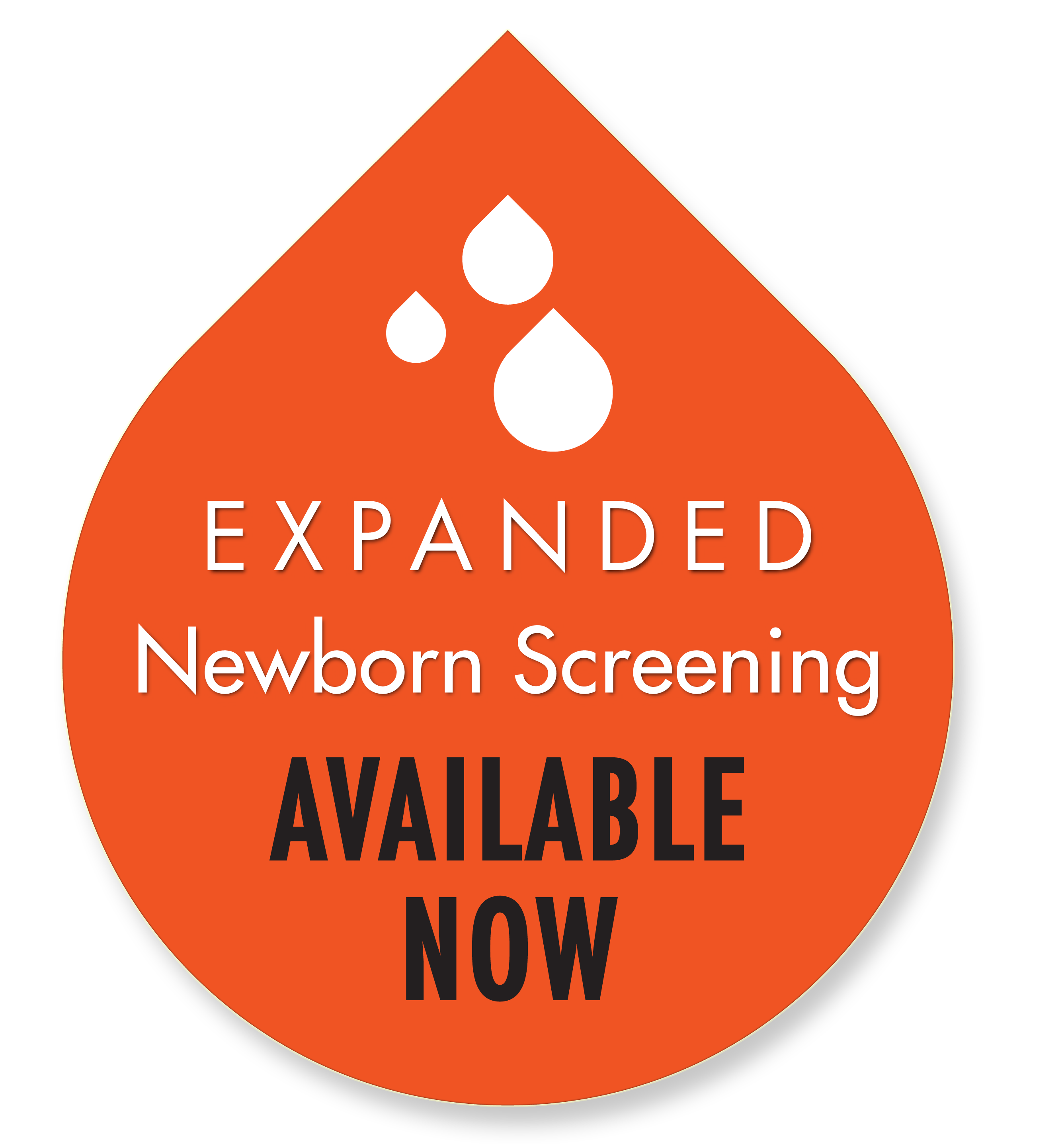|
FREQUENTLY ASKED QUESTIONS (FAQs):
BASIC INFORMATION ABOUT NEWBORN SCREENING
What is newborn screening?
Newborn Screening (NBS) is a simple procedure to find out if your baby has a congenital disorder that may lead to mental retardation or even death if left untreated.
What is Expanded Newborn Screening (ENBS)?
The expanded newborn screening program increased the screening panel of disorders from six (6) to more than twenty-eight.
Why is it important?
Most babies with metabolic disorders look “normal” at birth. By doing ENBS, metabolic disorders may be detected even before clinical signs and symptoms are present. As a result of this, treatment can be given early to prevent consequences of untreated conditions.*
When is it done?
ENBS is ideally done immediately after 24 hours from birth.
How is it done?
A few drops of blood are taken from the baby’s heel, blotted on a special absorbent filter card and then sent to Newborn Screening Center (NSC).
Who will collect the sample for ENBS?
The blood sample for ENBS may be collected by any of the following: physician, nurse, medical technologist or trained midwife.
Where is ENBS available?
ENBS is available in hospitals, lying-ins, rural health units, health centers and some private clinics.
How much is ENBS?
Expanded newborn screening costs ₱1750 and is included in the Newborn Care Package (NCP) for PhilHealth members.
What is Newborn Care Package?
NCP is a PhilHealth benefit package for essential health services of the newborn during the first few days of life. It covers essential newborn care, expanded newborn screening, and hearing screening tests.
What are the eligibility conditions for newborn to avail of the NCP?
Newborns are eligible for NCP if ALL of the following are met:
• Either of the parents are eligible to avail of the benefits,
• Born in accredited facilities that perform deliveries, such as hospitals and birthing homes; and
• Services were availed of upon delivery.
How can results be claimed?
Results can be claimed from the health facility where ENBS was availed. Normal ENBS results are available by 7 - 14 working days from the time samples are received at the NSC.
Positive ENBS results are relayed to the parents immediately by the health facility. Please ensure that the address and phone number you will provide to the health facility are correct.
What is the meaning of the newborn screening result?
A NEGATIVE SCREEN means that the ENBS result is normal.
A POSITIVE SCREEN means that the newborn must be brought back to his/her health practitioner for further testing.
What must be done when a baby has a positive ENBS result?
Babies with positive results must be referred at once to a specialist for confirmatory testing and further management.
What happens to the dried blood samples after screening?
After the dried blood spot has been tested, it will be stored in a secure locked area. The stored sample is retained to allow for normal quality assurance and may be used for ethics committee approved researches for the benefit of the public.
*Long term follow-up and management of children with confirmed newborn screening conditions ensure that these children receive the full benefits of early identification through newborn screening
Why screen your baby?
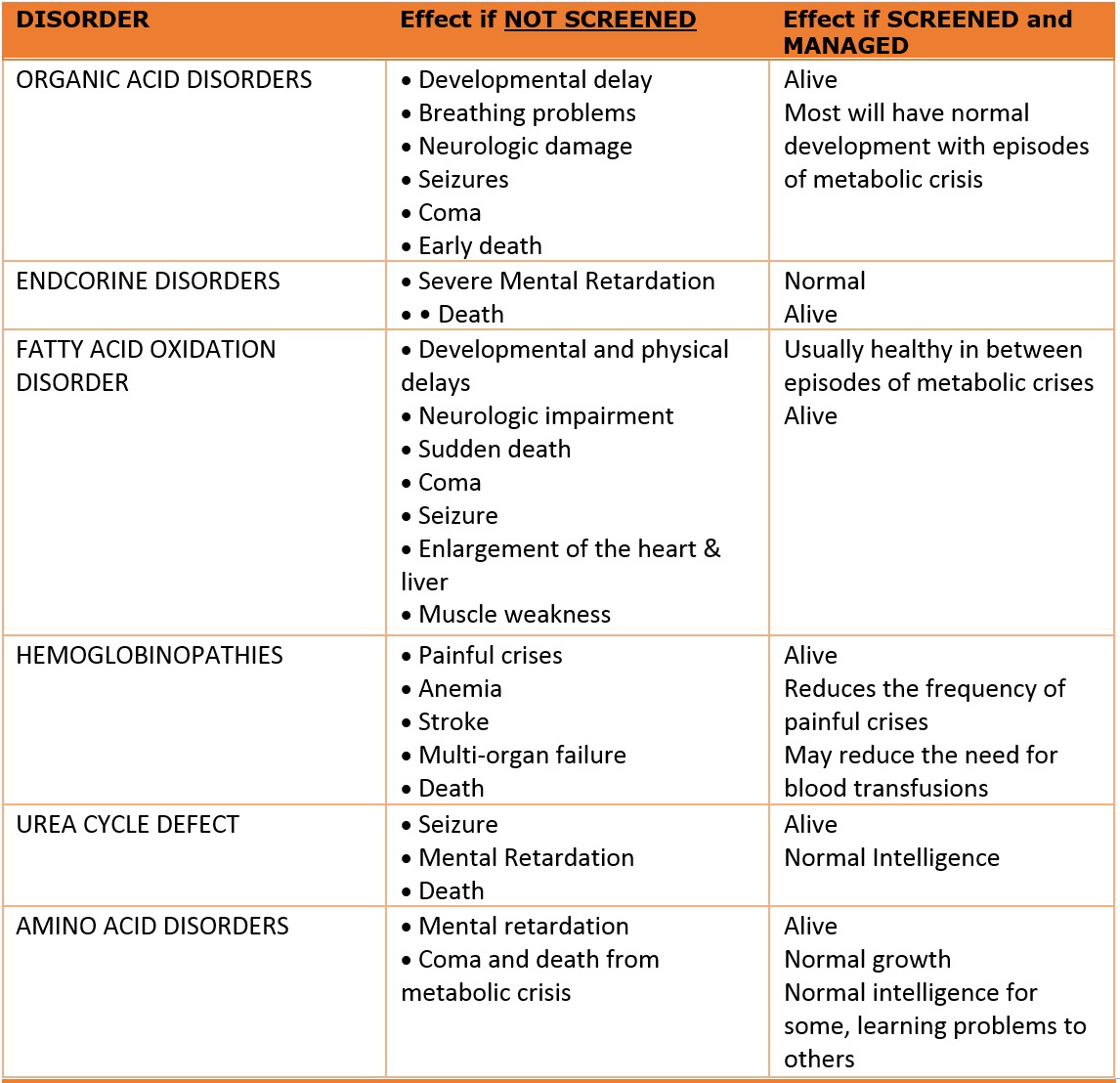
|

